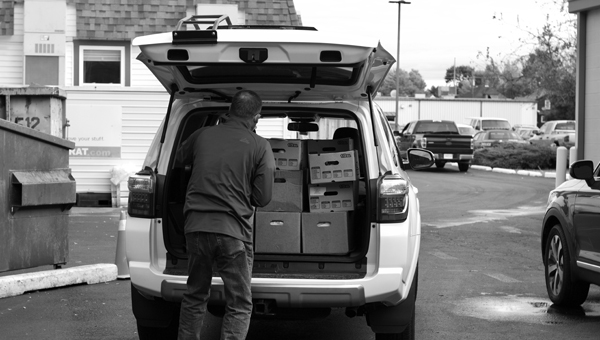
24 Jan ‘Life beyond the crisis’: Why Shepherd is a national model for helping neighbors secure independence
Cordell Carter is a revolutionary – at least when it comes to a vision for how governments should operate and how nonprofits should serve people in need.
“We need to help heal the wounds that people have,” Carter, commissioner of Tennessee’s Department of Human Services, said during a recent visit to Shepherd Community Center. “But we also need to help them prepare for life beyond the crisis.”
Carter noted that the primary goal for government at all levels is to sign people up for services. Once a person is receiving assistance with housing, food, health care or education, the mindset is that the mission has been accomplished.
But the true goal, Carter said, should be to help people become strong and secure enough that assistance is no longer needed.
“We need to grow families and individuals beyond the need for help,” said Carter, who previously served as director of the Office of Family Assistance and acting director of the Office of Community Services in the U.S. Department of Health and Human Service. “We need to get people to where they can say, ‘Thanks, but no thanks.’ “
Carter said he traveled from Nashville to Indianapolis to meet with the Shepherd Community team because the ministry embodies the “relief to rehab to redevelopment” approach he champions.
“Shepherd shows what it looks like on the ground to stop the bleeding and start the healing,” Carter said.
Shepherd Executive Director Jay Height said fostering neighbors’ long-term independence is a key aspect of the organization’s mission to “break the cycle of poverty” on the east side of Indianapolis. And it’s why Shepherd has invested heavily in providing educational services, job training and child care (which enables parents to work while ensuring their children are in a safe, nurturing environment).
“We need a societal commitment to helping people grow beyond their current vulnerabilities,” Carter said. “We shouldn’t accept that simply providing a service is a success. The Shepherd model needs to be replicated across the country.”

